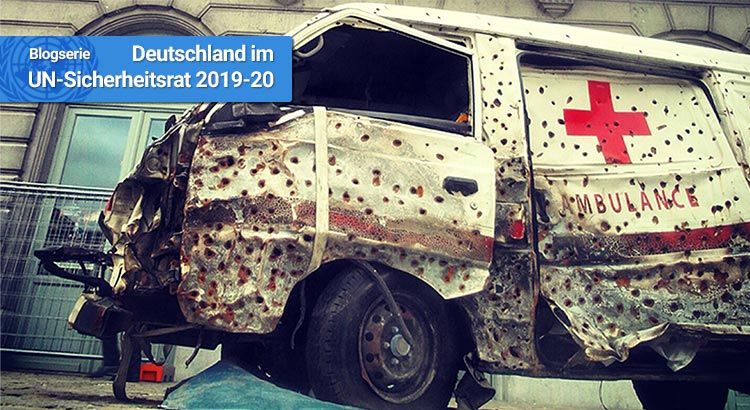How Germany advocates for the protection of aid workers in the Security Council
Germany has made the facilitation of humanitarian aid to one of its headline goals for its 2-year seat on the UN Security Council from 2019-2020, and a main theme for its shared Security Council Presidency with France in March and April this year. With this move, Germany decidedly contributed to make the delivery of relief to suffering populations an issue of ‘high politics’. It gives humanitarian aid the salience it deserves, given the rising need of people in humanitarian crises, as well as the constant violation of humanitarian law. Germany in particular focuses on protecting aid workers by promoting the humanitarian principles. However, this approach is insufficient and contradicted by other international humanitarian aid policies.
